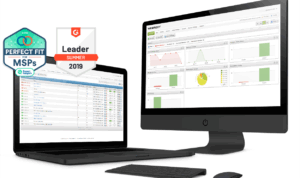Resource scheduling software has transformed the way organizations manage their assets, time, and workforce. By optimizing resource allocation, this technology enhances productivity and minimizes waste, making it an essential tool for modern businesses. As companies strive for efficiency in an increasingly competitive landscape, resource scheduling software emerges as a vital solution that streamlines operations and supports strategic decision-making.

In today’s fast-paced environment, the ability to effectively manage resources can mean the difference between success and stagnation. This software allows users to visualize resource availability, track usage, and forecast needs, providing a comprehensive approach to resource management. The integration of advanced algorithms and user-friendly interfaces further contributes to its growing popularity across various industries, from construction to healthcare and beyond.
In an increasingly digital world, businesses are continually seeking ways to connect with consumers. Digital marketing has emerged as a crucial component of this connection, allowing brands to reach their target audiences effectively and efficiently. This article delves into the significance of digital marketing, its various components, and how businesses can leverage it to enhance their reach and engagement.
Understanding Digital Marketing
Digital marketing encompasses a variety of online marketing efforts that utilize the internet and electronic devices. It includes strategies such as search engine optimization (), content marketing, social media marketing, email marketing, and pay-per-click advertising (PPC). These strategies allow businesses to promote their products and services, engage with customers, and build brand loyalty.
Why Digital Marketing Matters
Digital marketing is vital for several reasons:

- Widespread Reach: Unlike traditional marketing methods, digital marketing enables brands to reach a global audience instantly. With billions of people using the internet daily, businesses can target specific demographics based on their online behavior, interests, and needs.
- Cost-Effective: Digital marketing often proves to be more affordable than traditional marketing methods. Businesses can run campaigns with lower budgets and achieve high returns on investment (ROI) through targeted strategies.
- Measurable Results: One of the most significant advantages of digital marketing is the ability to measure the effectiveness of campaigns. Tools like Google Analytics provide insights into website traffic, user behavior, and conversion rates, allowing businesses to adjust their strategies accordingly.
- Enhanced Engagement: Digital marketing facilitates direct interaction between brands and consumers. Through social media platforms and email marketing, businesses can engage with their audience, answer questions, and build relationships that lead to increased customer loyalty.
- Adaptability: The digital landscape is ever-evolving, and businesses can quickly adapt their marketing strategies to meet changing consumer preferences and emerging trends.
Key Components of Digital Marketing
Digital marketing comprises various components, each playing a unique role in the overall strategy. Here’s a closer look at some of the essential elements:
Search Engine Optimization ()
is the process of optimizing a website to improve its visibility on search engine results pages (SERPs). By incorporating relevant s, creating high-quality content, and optimizing website structure, businesses can attract organic traffic and enhance their online presence.
Content Marketing
Content marketing focuses on creating valuable, relevant content to attract and engage a target audience. This includes blog posts, articles, infographics, videos, and more. The goal is to provide informative content that addresses the needs of potential customers, thus establishing the brand as an authority in its industry.
Social Media Marketing
Social media platforms like Facebook, Instagram, Twitter, and LinkedIn offer businesses a unique opportunity to connect with their audience. Through regular posts, engagement, and targeted ads, brands can build a community around their products and services, driving traffic and conversions.
Email Marketing
Email marketing remains one of the most effective digital marketing strategies. Companies can send personalized messages and offers directly to consumers’ inboxes, fostering a sense of connection and encouraging repeat business.
Pay-Per-Click Advertising (PPC)
PPC is a model of internet marketing where advertisers pay a fee each time their ad is clicked. This method allows businesses to gain immediate visibility on search engines and social platforms, driving traffic to their websites quickly. Effective targeting and ad copy are crucial for maximizing ROI in PPC campaigns.
Strategies for Effective Digital Marketing
To make the most of digital marketing, businesses should consider implementing the following strategies:
- Define Target Audience: Understanding the target audience is essential for successful digital marketing. Businesses should analyze their customers’ demographics, preferences, and behaviors to tailor their marketing efforts effectively.
- Utilize Analytics: Regularly reviewing analytics data helps businesses understand what is working and what isn’t. By making data-driven decisions, companies can refine their strategies and improve their results over time.
- Invest in Quality Content: High-quality content that resonates with the audience is crucial. Whether it’s informative blog posts or eye-catching social media content, providing value to consumers will enhance engagement and drive conversions.
- Keep Up with Trends: The digital landscape is constantly shifting. Businesses should stay informed about the latest trends and technology in digital marketing to remain competitive.
- Foster Relationships: Building relationships with customers through engagement and personalized communication is key. Brands should prioritize customer service and feedback, using these interactions to strengthen their community.
Challenges in Digital Marketing
While digital marketing offers tremendous opportunities, it also comes with challenges. Some of the common hurdles businesses face include:
- Market Saturation: With so many brands vying for attention online, cutting through the noise can be difficult. Businesses need to find unique angles and value propositions to stand out.
- Rapid Changes: The digital marketing landscape is ever-changing, with new tools, algorithms, and trends emerging frequently. Businesses must remain agile and willing to adapt to these changes to keep their strategies relevant.
- Data Privacy Concerns: Increasing regulations around data privacy, such as GDPR and CCPA, require businesses to be cautious in how they collect and use consumer data. Navigating these regulations while still achieving marketing goals can be challenging.
Conclusion
In summary, digital marketing is an essential component of modern business strategy. Its ability to reach a broad audience, provide measurable results, and foster engagement makes it a powerful tool for driving growth. By understanding its components and implementing effective strategies, businesses can navigate the digital landscape successfully and achieve their marketing goals. As the digital world continues to evolve, staying informed and adaptable will be key to leveraging the full potential of digital marketing.
Top FAQs
What are the main benefits of using resource scheduling software?
It enhances efficiency, improves resource allocation, reduces waste, and supports better decision-making.
Can resource scheduling software integrate with other tools?
Yes, many resource scheduling solutions offer integrations with project management, accounting, and collaboration tools.
Is resource scheduling software easy to use?

Most resource scheduling software is designed to be user-friendly, with intuitive interfaces to streamline the scheduling process.
What industries benefit most from resource scheduling software?
Industries such as construction, healthcare, IT, and hospitality greatly benefit from effective resource scheduling.
How can I choose the right resource scheduling software for my business?
Consider factors like your specific needs, budget, ease of use, and integration capabilities when selecting software.
























